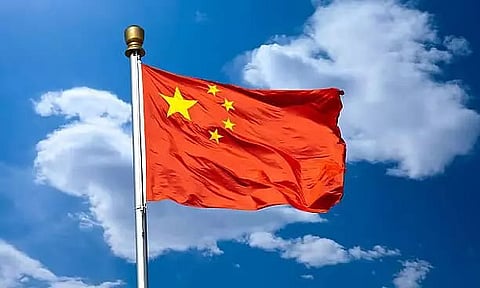
- Home
- Live Blog
- Breaking News
- Top Headlines
- Cities
- NE News
- Sentinel Media
- Sports
- Education
- Jobs

WASHINGTON: Since the end of World War II, the International Monetary Fund and the United States have been the world’s lenders of last resort, each wielding broad influence over the global economy. Now a new heavyweight has emerged in providing emergency loans to debt-ridden countries and that is China, New York Times reported.
New data shows that China is providing ever more emergency loans to countries, including Turkey, Argentina and Sri Lanka. China has been helping countries that have either geopolitical significance, like a strategic location, or lots of natural resources. Many of them have been borrowing heavily from Beijing for years to pay for infrastructure or other projects. While China is not yet equal to the IMF, it is catching up fast, providing USD 240 billion of emergency financing in recent years. China gave USD 40.5 billion in such loans to distressed countries in 2021, according to a new study by American and European experts who drew on statistics from AidData, a research institute at William and Mary, a university in Williamsburg, Va. China provided USD 10 billion in 2014 and none in 2010, New York Times reported.
By comparison, the IMF lent USD 68.6 billion to countries in financial distress in 2021, a pace that has stayed fairly steady in recent years except for a jump in 2020, at the start of the pandemic.
In many ways, China has replaced the United States in bailing out indebted low, and middle-income countries. The US Treasury’s last sizable rescue loan to a middle-income country was a USD 1.5 billion credit to Uruguay in 2002. The Federal Reserve still provides very short-term financing to other industrialized countries when they need extra dollars for a few days or weeks, New York Times reported.
China’s emerging position as a lender of last resort reflects its evolving status as an economic superpower at a time of global weakness. Dozens of countries are struggling to pay their debts, as a slowing economy and rising interest rates push many nations to the brink.
The IMF has also stepped up its own bailouts in recent weeks, in response to Russia’s war in Ukraine and the aftereffects of the pandemic. The IMF reached a preliminary agreement in March to lend USD 15.6 billion to Ukraine, a day after its board approved a USD 3 billion loan to Sri Lanka, New York Times reported.
Beijing’s new role is also an outgrowth of the decade-old Belt and Road Initiative, the signature project of Xi Jinping, China’s top leader, to develop geopolitical and diplomatic ties through financial and commercial efforts. China has lent USD 900 billion to 151 lower-income countries around the world, mainly for the construction of highways, bridges, hydroelectric dams and other infrastructure.
American officials have accused China of engaging in “debt trap diplomacy” that is saddling countries with excessive debt for construction projects carried out by Chinese companies often using Chinese engineers, Chinese workers and Chinese equipment. Chinese officials contend that they have built much-needed infrastructure that the West talked about for decades but never completed, New York Times reported.
Unlike many lenders to developing countries, state-controlled financial institutions in China largely doled out loans at adjustable rates. The payments due on many of these loans have doubled in the past year, putting many nations in a difficult financial spot. China, for its part, blames the US central bank, the Federal Reserve, for putting pressure on countries by pushing up interest rates.
China’s central bank is extending separate, emergency loans at fairly high-interest rates to Laos, Pakistan, Nigeria, Suriname and other financially distressed countries. China’s state-owned banks face losses if Beijing does not bail out their borrowers but may profit if other countries manage to stay current on their debt payments, New York Times reported. (ANI)
Also Read: Burqa-clad women protest in Pakistan for release of political outfit’s chief
Also Watch: